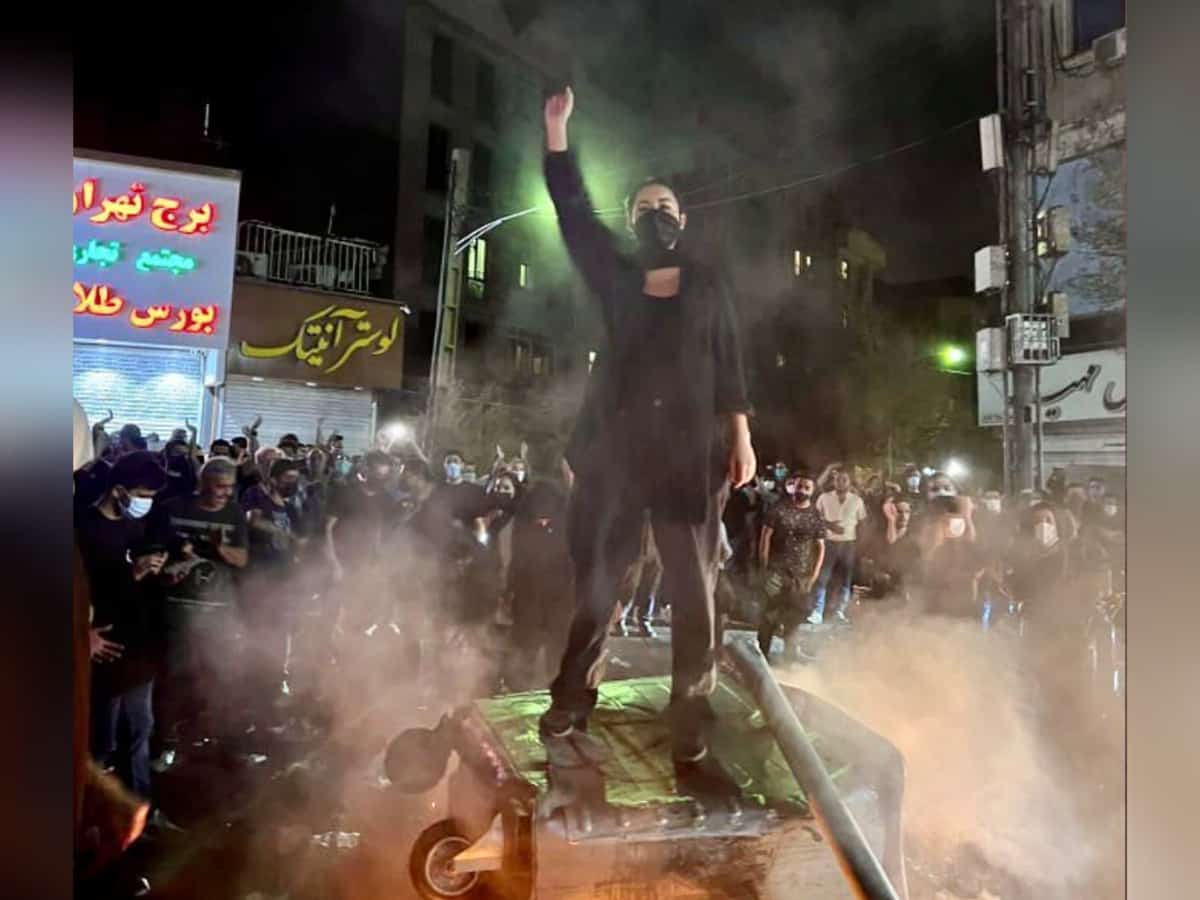
Tehran: Iranian police have arrested a number of activists and journalists against the backdrop of the protests that prevailed in the country after the death of Mahsa Amini who was arrested by the Iranian morality police.
22-year-old Mahsa Amini fell into a coma and died while in the custody of Iran’s morality police for wearing the hijab in an ‘improper manner’ meaning she had not fully covered her hair.
Amini fell into a coma shortly after collapsing at a detention centre before she was pronounced dead on Friday, September 16.
The protests began on Saturday, September 17, during Amini’s funeral in the Kurdish region, and are still continuing in most parts of the country, sparking confrontations as the security forces sought to suppress the demonstrations.
For eight nights, the protestors confronted the security forces, burning police vehicles and chanting anti-regime slogans in dozens of Iranian cities.
From remote villages to the buildings of Tehran University in the capital, Iranian women are leading protests against the regime, standing at the forefront of demonstrations and rallying crowds by burning their obligatory headscarves, cutting their hair and dancing in public.
Hundreds of detainees
There were reports of mass arrests, and General Azizullah Maliki, police chief of Gilan province, announced that 739 rioters, including 60 women, were arrested in the province, according to the Tasnim News Agency.
Security forces arrested a number of activists and journalists, and Sherif Mansour of the Committee to Protect Journalists, based in the United States, reported the arrest of 11 journalists since Monday, including Niloofar Hamedi of the reformist Sharq newspaper, who covered Amini’s death.
According to reports, the Twitter account of journalist Niloofar was also suspended before the arrest. It is not yet clear whether Niloofer’s handle has been suspended at the request of the Iranian administration or for any other reason. With the arrest of Niloofer, Iranian security forces have also started a crackdown on other protesters across the country.
Award-winning female photographer Yalda Moayeri was arrested on September 20 in Tehran and transferred to the Qarchak prison in the south of the capital.
Editor of the Mukrian news agency Masoud Kordpur and his brother Khosro were also arrested following their reports on the death of Mahsa Amini and their coverage of the protests in Iran.
Hengaw human rights organizations also reported the arrests of reporters Marzieh Talaee and Khatibzadeh.
Conflicting numbers of dead
Regarding the numbers of victims, the authorities have not yet announced the death toll, and there are conflicting unofficial numbers, ranging from 35 to 50 people.
State television reported that the death toll had risen to 41. However, the number may be higher, as the Oslo-based opposition non-governmental organization Iran Human Rights reported that at least 50 people were killed during the suppression of the demonstrations.
Restricting internet
NetBlocks, a non-governmental organization that monitors network security and internet freedom, said Skype is now restricted in Iran, as part of a crackdown on communications that targeted other platforms such as Instagram, WhatsApp and LinkedIn.
More repression after internet blocking
Amnesty International warned, late Friday, of “the risk of more bloodshed amid a deliberate blocking of the Internet.”
Amnesty said the evidence it collected from 20 cities across Iran “reveals a horrific pattern of the repeated and unlawful direct shooting of protesters”.
Iran has imposed severe restrictions on internet use in an attempt to disrupt the gathering of protesters and prevent images of the crackdown from reaching the outside world.
The United States announced on Friday that it has eased technology export restrictions imposed on Iran to expand access to internet services.
US Secretary of State Anthony Blinken said the new measures “will help counter the Iranian government’s efforts and oversight of its citizens.”



